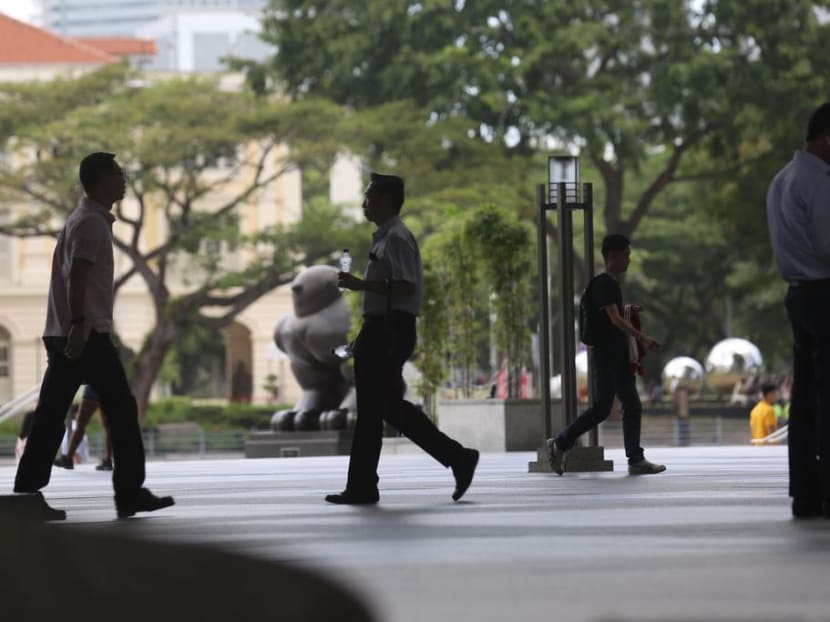Labour market yet to hit bottom, full impact likely in second quarter of 2020: Josephine Teo
SINGAPORE — The labour market in Singapore has yet to hit bottom, with the full impact of the Covid-19 pandemic likely to be felt only in the second quarter of this year, said Manpower Minister Josephine Teo on Friday (May 29).

In its advance report on the labour market last month, the Ministry of Manpower (MOM) said that the total employment in Singapore in the first quarter of the year, excluding foreign domestic workers, suffered its sharpest contraction since 2003 as the effects of the Covid-19 outbreak began to take a toll on the economy.
SINGAPORE — The labour market in Singapore has yet to hit bottom, with the full impact of the Covid-19 pandemic likely to be felt only in the second quarter of this year, said Manpower Minister Josephine Teo on Friday (May 29).
Mrs Teo, who was giving the media an update on Government measures to help workers through the economic downturn, said that even as recent labour market statistics have already begun showing a clear downward trend in employment vacancies, these numbers will likely get worse.
She noted that there has been anecdotal evidence of companies rescinding job offers and scaling back on hiring plans, which indicates that in the months ahead, jobs will be even “fewer and harder to come by”.
And while first-quarter labour market figures do not show a sharp spike in retrenchments, Mrs Teo said there will likely be an increase in the number after the circuit breaker period too.
In its advance report on the labour market last month, the Ministry of Manpower (MOM) said that the total employment in Singapore in the first quarter of the year, excluding foreign domestic workers, suffered its sharpest contraction since 2003 as the effects of the Covid-19 outbreak began to take a toll on the economy.
The number of people retrenched also rose, to 3,000 in the first three months of the year, compared with 2,670 in the last quarter of 2019.
Even so, Mrs Teo noted that in past downturns, the full impact on the labour market was only felt months after the crisis had begun.
For instance, in the case of the financial crisis, job vacancies only hit rock bottom in the first quarter of 2009 — six months after the crisis was precipitated by the collapse of investment bank Lehman Brothers in Sept 2008.
This means that Singapore’s job market has yet to feel the full brunt of the Covid-19 outbreak, said Mrs Teo.
After all, economic activity in the first quarter of this year was “ordinary”, with the tourism and hospitality industries still benefiting from tourism over the Chinese New Year holidays and people still dining out for most of the quarter, before safe distancing measures were put in place in late March.
Even in February, when tourism was affected due to a fall in the number of visitors from China, there were still visitors from other markets, noted Mrs Teo.
“The Ministry of Trade and Industry has given some projections for the whole year, but if I had to make an educated guess, the sharpest distinction will be between the first quarter and the second quarter,” she said.
When asked how much worse the job market could get, Mrs Teo said that at the worst point of the 2009 global financial crisis, the job vacancy to unemployed person ratio fell to 0.37. This meant that for every 37 job vacancies, there were 100 job seekers.
By comparison, in MOM’s preliminary estimate for the month of March this year, there were about 70 job vacancies for every 100 job seekers.
“We are only now at half of what the worst period of the global financial crisis was,” Mrs Teo pointed out.
Since March 12, MOM has received notifications from over 4,000 companies that they are adjusting pay or introducing some form of cost-saving measures for their employees, she added.
These measures will affect about 150,000 local and foreign employees, making up less than 5 per cent of the entire workforce, she said.
She noted that not all companies are required to notify MOM if they are taking such steps, and so, there could be more that are making similar moves.
“I would say at this time that the impact, even if you take into consideration the companies that are not required to notify us... probably is still a bit moderated, but I don’t think we can take that as a given. I think our attitude has to be that it will get much harder and the road will become much more bumpy,” she said.








